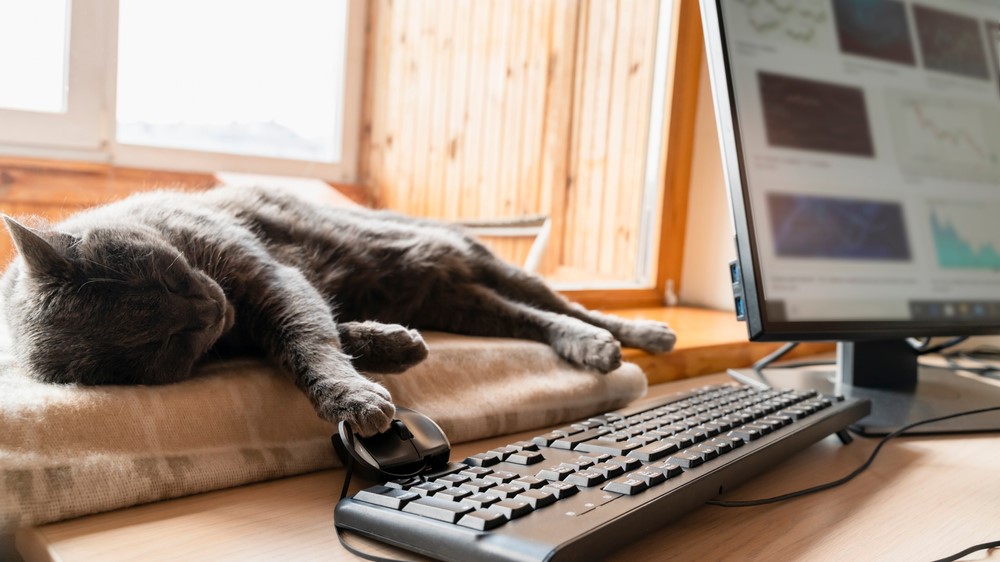Remote working was once something that employees would have to fight for during contract negotiations, but the COVID-19 pandemic changed that.
Almost overnight, igaming organisations were forced to send staff home to work indefinitely and a year and a half later it has now become the new norm.
But as restrictions are eased and governments around the world begin, or in some cases continue, to encourage employees to return to the office, will remote working stay?
If it does, what does this mean for organisations in an industry where onboarding the best talent in the business is often the difference between success and failure.
In this roundtable, CasinoBeats hears from Charlotte Cain, HR manager of Continent 8 Technologies, David Flynn, CEO of Glitnor Group and Dirk Camilleri, chief product and technology officer at Green Jade Games, to understand their approach to remote working.
CasinoBeats: How has the pandemic changed your approach to remote working? Was it something you were already doing, or did you have to adapt?
CC: Continent 8 Technologies already had employees working remotely before the pandemic. As a global technology business with data centres and strategic points of presence across four continents, our team members are based around the world and across several office hubs such as the Isle of Man, Ireland and Florida.
Of course, the pandemic still had an impact and forced most of our employees to work from home (as an infrastructure business we were permitted skeleton staff in our data centres) with lockdowns imposed in most of the countries where we have employees located. As a company we had to adapt quickly and support our people in what for many was a huge change.
What we are seeing now that some countries and jurisdictions are out of lockdown and are easing restrictions is that employees enjoy the choice to either work in the office or from home, or a mixture of both. Flexibility is going to be key moving forward, and as a business this is something we not only offer but fully embrace.
“…I would say that the biggest challenges are for the team members themselves”
David Flynn, CEO of Glitnor Group.
DF: With more than 180 team members across eight countries, Glitnor Group is quite a distributed business. While we hadn’t been operating a strict remote working policy, we have ensured that the teams make their own choice as to whether they come to the office or not during the pandemic whilst ensuring we abide by local regulations.
As things return to normal, and while no one knows the ‘right’ answer, we are in the process of clarifying our future processes so that remote working will be something that Glitnor teams will continue to benefit from moving forward.
DC: In today’s digital world, a lot of business relationships are started online, and we have been working with several partners based in different locations for years now. So, when the pandemic started, we quickly adapted and have been able to keep our productivity levels up.
CB: What challenges does remote working present an igaming organisation. How does it impact infrastructure, collaboration and delivery of service/product?
DF: There are a number of areas where remote working can impact a business. However, I would say that the biggest challenges are for the team members themselves.
When working remotely, it is very important that team members create a space that allows them to work and then to be able to switch off once the day is over. Constantly being available, or having your laptop open, could cause stress and burn-out which is something that nobody wants.
“…we empower the team to be self-sufficient and to take ownership of their deliverables”
Dirk Camilleri, chief product and technology officer at Green Jade Games.
Another impact is that members could become quite isolated, so it is important that video calls, for example, are taken with the camera on to ensure that real face time is achieved. It is also important to allow time for a quick social chat before/after meetings as this is what helps build collaboration between team members.
It’s also important to not have too many video calls, Slack channel activity and chats so that one has the ability to focus on tasks. A company should consider a focus day during the week where there are no meetings.
Collaboration software ensures that teams can indeed collaborate more online now that the wipe board is no-more. With all the available online tools, the one I enjoy most is Miro. It is extremely useful for brainstorming ideas with input across the team.
DC: I think the biggest challenge is collaboration, as developing interpersonal relationships takes different tactics and approaches when done remotely. Getting this wrong affects service and product, and when you hire the best people who have ambition and enthusiasm to deliver on the company vision, those interpersonal relationships are key to success on all fronts.
CB: How do you manage team members and ensure productivity? Is the more difficult with remote working?
CC: As a highly technical workforce, it was a swift transition to working remotely and it was a case of making the most of the collaboration, messaging and meeting tools we already had in place.
“Flexibility is going to be key moving forward”
Charlotte Cain, HR manager of Continent 8 Technologies.
Team meetings quickly moved to online daily stand-ups and there was a strong reliance on up-to-date reporting and data dashboards, giving readily available information. Productivity remained extremely high and much of this was due to the trust we have in our employees to get their work done in the way that suits them best.
Our growth during the pandemic, which came mostly in the US where we rolled out across 10+ states, has kept our teams busy; despite having to work remotely, they continued to deliver to the same standards as before. As an organisation, this is something we are incredibly proud of.
For us a big challenge was to ensure we continued to service our customers to the incredibly high standard they have come to expect. Doing this remotely when as an organisation we are used to meeting face-to-face was no easy task.
In normal circumstances, our sales and account management team would be on the road frequently but this came to an immediate stop with the onset of the pandemic. We had to find new ways of working, communicating and collaborating, which have ultimately become the norm.
DC: The challenge with remote employees has been to get our values and culture across and doing so remotely is more difficult. We have invested time and support in people and making sure we all function as a team and, although it poses a challenge, we are very pleased with the culture we are building here at Green Jade Games.
Communication is obviously the key. Apart from several meetings which take place, we do make use of several group chats to promote transparency and visibility to other team members. In terms of productivity, we empower the team to be self-sufficient and to take ownership of their deliverables.
DF: This is quite an easy area for Glitnor. We have an amazing team. It may sound like a cliché, but they truly are empowered to take responsibility and as such ‘productivity’ is not really a term we consider. Our results speak for themselves.












